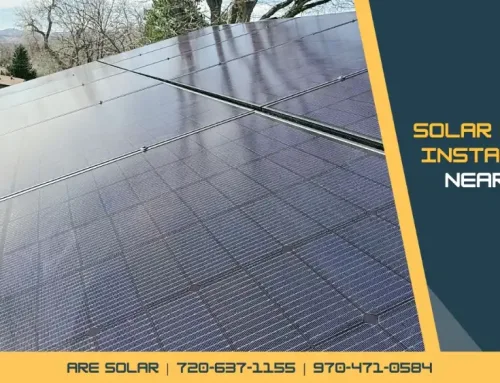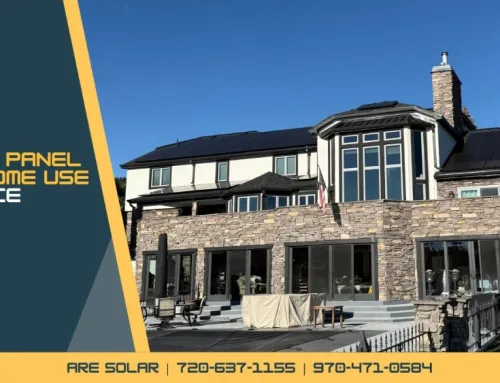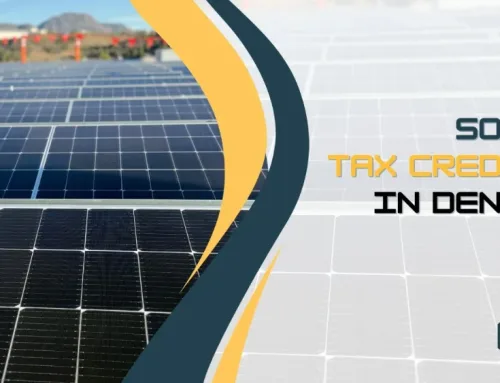Denver’s beautiful climate is one of the reasons people love living here. But that same climate is becoming increasingly unpredictable and sometimes downright dangerous. Over the past decade, Denver residents have experienced everything from record-breaking heat waves and destructive hailstorms to snow events that knock out power for days. More than just flukes, these shifts are symptoms of a larger climate pattern. And as the grid strains under extreme conditions, many homeowners are left wondering how to better protect their homes and families.
The truth is, the grid wasn’t built to handle this level of stress. Long outages, rising electricity prices, and utility infrastructure stretched to its limits are all signs that something needs to change. Solar energy offers a solution that’s not just smart but also urgent. It empowers homeowners to take control, reduce their carbon footprint, and protect themselves from escalating risks. And when storms come knocking, wouldn’t it be better to have energy stored, ready, and reliable?
The availability of federal tax credits (for now) only sweetens the deal, offering homeowners thousands of dollars in potential savings. But those incentives won’t be around forever. With the House Ways and Means Committee advancing legislation to eliminate the Residential Solar Tax Credit (Section 25D) by December 31, 2025, there’s a real deadline driving urgency. If you’ve been waiting for the right time to go solar in Denver, the weather—and the law—are both telling you: act now.
Let’s take a closer look at how extreme weather is changing the way Denverites think about energy and why solar power for residential homes in Denver is quickly becoming the smart choice.
Weather-Related Outages Are on the Rise
The Strain on Denver’s Aging Power Infrastructure
Denver’s power grid is overburdened. With more frequent storms and record-high temperature swings, utilities are scrambling to respond to outages, fallen lines, and infrastructure damage. A single snowstorm or wind event can knock out power to entire neighborhoods, leaving homes without heat, light, or the ability to charge essential devices.
What’s worse, outages aren’t always brief. Depending on the extent of damage and the speed of the utility response, it could take hours, or even days, to restore power.
Solar: A Built-In Backup Strategy
For homeowners, this means that the old “wait for the power to come back” mentality is no longer good enough. Instead, many are turning to solar power for residential use in Denver as a reliable and long-term solution. When combined with battery backup systems, solar allows you to store energy during calm days and tap into it when disaster strikes, offering power autonomy even during grid-wide failures.
Solar Power for Residential Homes in Denver: A Smart Move in a Changing Climate
What Climate Models Say About Denver’s Future
Scientific studies and local meteorological data both confirm it: extreme weather in Colorado is getting more severe and more frequent. Rising global temperatures mean hotter summers, drier conditions, and heavier storms when precipitation finally does fall. Denver is seeing firsthand what climate instability looks like and so are its homeowners.
With utility costs rising alongside these weather changes, it’s no wonder why more people are researching solar power for residential homes in Denver. The initial investment is increasingly seen as protection—not just against future costs, but against the very real impact of climate disruption on household life.
Resilience and Independence Start on Your Roof
Installing a solar energy system means you’re turning your roof into a self-sustaining power station. You’re no longer at the mercy of power companies’ timetables, peak hour pricing, or unpredictable weather-related disruptions. And you’re investing in a system that not only pays for itself over time but also adds long-term value to your home.
Storm-Resistant Energy Starts at Home
How Solar Panels Perform During Bad Weather
One of the biggest misconceptions is that solar only works when it’s sunny. In reality, solar panels in Denver are engineered to be effective in a range of conditions, including cloudy skies and snowy rooftops. Modern panels are highly efficient and capable of drawing energy even when the sun isn’t fully out.
And in the winter? Snow typically melts quickly from solar panels due to their dark, heat-absorbing surfaces and angled positioning, which promotes runoff.
The Power of Storage: Why Batteries Matter
The true game-changer, however, is storage. With battery systems, your panels collect energy during the day and store the excess for later use. So, when a storm knocks out the grid or your utility provider goes down, your home doesn’t skip a beat.
The Financial Storm on the Horizon: The Tax Credit Deadline
Don’t Miss Out on the 30% Federal Tax Credit
The Residential Solar Tax Credit has made solar more affordable for countless homeowners. Currently, it allows you to deduct 30% of the cost of installing a solar system from your federal taxes. That can mean thousands of dollars back in your pocket.
But that opportunity won’t last. If the current bill in Congress becomes law, this incentive will disappear for homeowners after December 31, 2025. This looming deadline makes now the ideal time to install solar power for residential use in Denver before costs rise and the chance to save disappears.
Inflation, Supply Chain, and Labor Costs Are All Rising
On top of the policy-driven urgency, the industry itself is feeling pressure. High demand, rising labor costs, and ongoing supply chain challenges are already increasing the cost of solar installations nationwide. Waiting too long could mean not only missing out on tax incentives, but paying more for the same system later.
Why Denver Homes Are Perfect Candidates for Solar
Sunlight Abundance and Local Incentives
Denver is one of the sunniest cities in the United States, averaging over 300 days of sunshine a year. That makes it ideal for solar efficiency and long-term performance. Local net metering policies also allow homeowners to earn credit for the surplus energy they send back to the grid, further reducing monthly costs.
Solar Is Scalable and Flexible for Any Home
Whether you live in an older home in Park Hill or a new build in Highlands Ranch, solar power for residential homes in Denver can be customized to fit your roof structure, energy needs, and long-term goals. As systems become more advanced and affordable, even homes with limited roof space or tricky orientations can still benefit from the power of the sun.
Don’t Wait for the Next Storm, Act Now with ARE Solar!
When the next power outage hits, will you be ready? ARE Solar helps Denver homeowners future-proof their homes with reliable, efficient, and resilient solar energy systems designed to handle Colorado’s toughest weather. Our end-to-end services cover everything, from permitting and engineering to professional installation and long-term monitoring.
We’ve built our reputation on transparency, technical expertise, and quality workmanship. We work closely with you to design a system that maximizes your energy savings, reduces your dependence on the grid, and prepares your home for the unexpected.
And remember: the Residential Solar Tax Credit could vanish by the end of 2025. That means you may only have one more summer to take advantage of major federal incentives. Waiting could cost you thousands—not to mention the peace of mind you gain from storm-ready energy independence. Contact us today and let’s build a better, brighter, more resilient future starting with your roof.



















